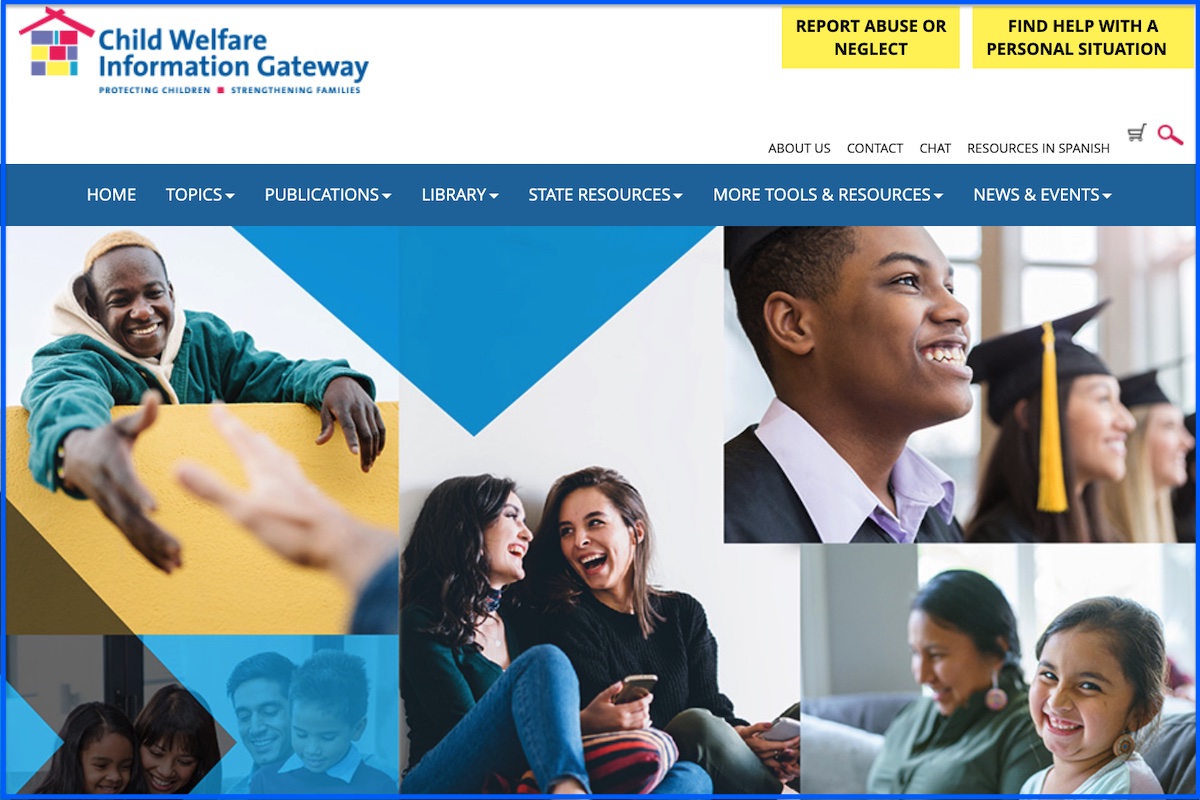April is National Child Abuse Prevention Month. In recognition of the month, the Child Welfare Information Gateway shares several publications focused on supporting families and preventing child abuse:
- Separating Poverty From Neglect in Child Welfare
- Two-Generation Approaches to Supporting Family Well-Being
- Forensic Interviewing: A Primer for Child Welfare Professionals
- Protective Factors Approaches in Child Welfare
- Factores de protección para una familia fuerte (Protective Factors for a Strong Family)
- Child Welfare Practice to Address Racial Disproportionality and Disparity
- Family Engagement: Partnering With Families to Improve Child Welfare Outcomes
- In-Home Services to Strengthen Children and Families
We especially appreciate the recommendations in Family Engagement: Partnering With Families to Improve Child Welfare Outcomes and that it ties family-driven approaches, such as parent-peer support, to better outcomes for children and families. It discusses the importance of developing strong relationships between foster and birth families and case workers supporting these relationships. It describes the Quality Parenting Initiative (QPI), a transformative approach to child welfare that “puts those with lived experiences at the center of policy change.”
Recent legislation is consistent with these approaches. House Bill 510 includes a Foster Parent Bill of Rights. One of the rights is: “The opportunity to request from the youth court permission to communicate with the child’s birth family, previous foster parents of the child, and prospective and finalized adoptive parents of the child, without the threat of reprisal. However, this right creates no obligation of the birth family, previous foster parents, or prospective and finalized adoptive parents to communicate in return.”
Foster parents can support birth families and serve as mentors. Yet they are often under-utilized in an already stretched system in which overtaxed caseworkers may not be able to provide all the support needed to birth families. Birth families are sometimes more receptive to foster families than people they perceive as part of “the system.”
There is tremendous potential to support families involved in Mississippi’s child welfare system with family-driven approaches, such as parent-to-parent peer support and engaging families in policy development. We look forward to opportunities to help the state to implement these approaches. Mississippi’s statutorily mandated system of care infrastructure provides an excellent foundation for building these practices.
[Image courtesy ChildWelfare.gov]

